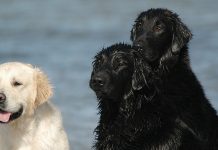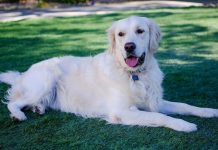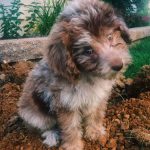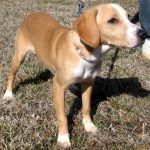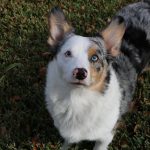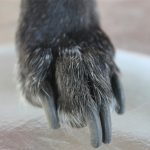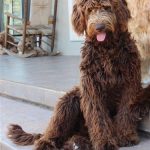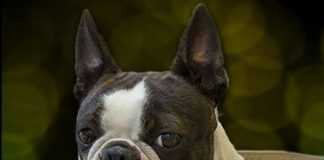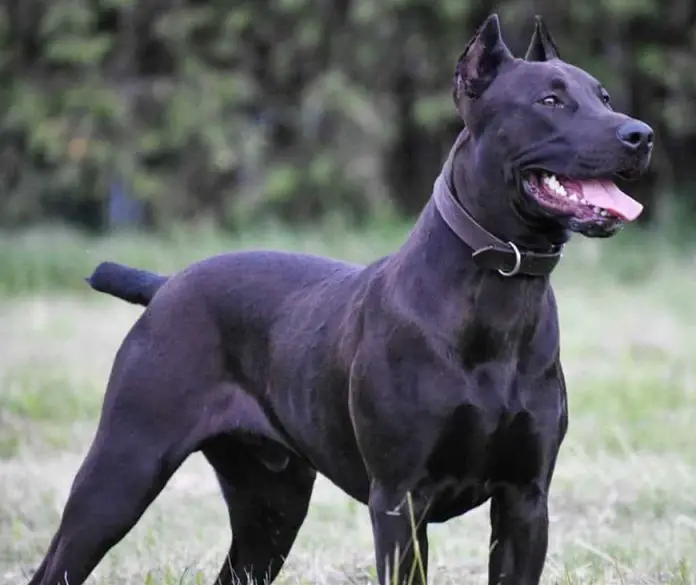
The Canis Panther, also known as the Panther Dog, is best known for its guarding abilities. Yet there is more to this breed than its ability to protect its owners. Find out why the Canis Panther is preferred by many and why there are pet parents who cannot get enough of this breed.
History
The Canis Panther was first bred in the United States by a group of personal trainers and comes from a lineage of four different breeds. Cleotha Jones and two other trainers used the Black Great Dane, the Black Labrador, the Staffordshire terrier, and the Doberman Pinscher during the 1970s when establishing this breed. While many people regard it as a mixed breed, there are a lot of studies claiming that it is actually a purebred.
Recognition
The crossbreed is not recognized by any major dog club or organization like the American Kennel Club. However, due to its ability to protect, the breed received recognition from the Protection Sports Association.
Should you want to buy a Canis Panther, there are small organizations to inform you about the exercise needs, feeding, and temperament of the breed. You can also find groups on social media for owners of the Panther dog to serve as a guide or reference before buying one.
Appearance
This heavily muscled breed is a large to giant dog that usually grows from 85 to 140 pounds and stands 24 to 30 inches in height. Females normally have a smaller built compared to male dogs. Based on their breed standard, Canis Panthers are supposed to have a wide jaw, cropped ears, and docked tails.
You can find them in different solid coat colors like black, chocolate, and fawn. Some could also have a grey coat and a fawn or buckskin coat. Like the American Staffordshire terrier, it has a fearsome and muscular built.
Due to its short coat, this breed does not do well in cold climate. It can adapt to heat except in extremely hot weather. If you live in a cold region, you will need to take extra measures like providing a warm shelter for your pet and shortening your dog’s time outside. You may also consider a doggie coat especially if you live in a place where there is winter.
Grooming
This breed has a short coat that does not require much grooming. When brushing its coat, do it in the hair growth direction. Start from the head down to the tail as gentle as you can, especially if you are using a slicker brush that can scratch your dog’s skin if used in a wrong way.
A flea comb is the best brush for Canis Panthers because it helps remove loose fur just before it falls off anywhere in your house. The Panther is a minimal shedder but you still need to brush it to distribute the natural oils in its coat.
Apart from brushing its coat, it is also important to routinely check the ears for signs of infection and clean the dog’s mouth using a doggie toothbrush to prevent tooth decay. You have to introduce brushing at an early age so your dog will be used to cleaning his mouth and teeth, and prevent periodontal diseases later on.
Personality
While it’s usually friendly, this dog is not recommended for families with young children. It is not advisable for timid owners, because the Panther needs a dominant leader because it is submissive. Don’t expect the Panther dog to be friendly around strangers. They are easy to train but they are not advisable for novice pet parents.
Also be extra vigilant when they are around small children. This breed has the tendency to be quite aggressive since they were originally bred as guard dogs for personal protection. It is best for solo-living individuals and couples who want a companion dog.
The Canis Panther can actually be quite sensitive. It enjoys belonging in a pack and would try everything it can to protect its owners. The only drawback about the Canis Panther is it has the tendency to be territorial.
If the Panther dog considers a person to be a threat, he will likely exhibit hostility or unfriendliness. But if the Panther is comfortable around somebody, he will be very affectionate and will show its loyalty. Only those who own a Panther dog know how loving and sweet it can be, because it will not show its good traits around everyone.
This unlikely behavior can be avoided by ensuring the dog receives enough socialization. It should be exposed to new faces and environments at an early age so it will not over-react to things around him.
This agile dog is also highly intelligent, that is why it excels in obedience training classes. Although it is an excellent guard dog, it does not have the traits of a great watchdog. Since it does not bark or howl a lot, it will not always warn its owners when something is not right.
Feeding
This working dog needs a high amount of protein in its diet for healthy muscles, bones, and nerves. The best dog food for Canis Panthers is one made of high-quality protein like grass-fed beef, turkey, and chicken.
If made of fruits and vegetables, check if the food is not made of genetically modified organisms. Your best bets are peas, carrots, berries, and apples. Limit legumes because not all of their varieties contain the sufficient amount of nutrients your pet’s needs. Lentils and beans arefriendly options but be careful in serving them to your pet because they contain high amounts of fiber that may cause runny stool.
Whether you choose dry or wet dog food for your pet, make sure they are free from harmful ingredients like preservatives, artificial colors, and meat meal by-products. The fats should not be made of rendered animal fat as it can harm your pet in the long run.
Feeding human foods to dogs should be guided by a veterinarian especially if the dog had a history of allergy to certain foods before. A raw diet can be good for dogs, as long as it is done right. It can be quite expensive, though and it requires careful planning because it does more harm than good if done in an inappropriate manner.
Take note of all the human foods to avoid, like chocolates, macadamia nuts, garlic, onions, raisins, and grapes. These foods are considered toxic to dogs and can cause stomach aches and even death depending on the amount consumed.
Health
The Canis Panther can only live 10 to 11 years on average. One of the advantages of owning a Panther dog is it does not have a lot of health problems. The only problems often seen in this breed include:
- Ear infections – Panther dogs have cropped ears, which are believed to be less prone to ear infections. However, this is not always the case. In fact, a dog could suffer from infection of the ears regardless if they have cropped ears or not. When a dog has infected ears, it will always shake his head from discomfort and will have an unpleasant ear odor. Intense scratching and lack of balance are also among the signs of canine ear infection. In such a case, it is best to have the dog examined to determine the real cause. It can be due to bacteria, yeast, or allergy to a certain food. Apple cider vinegar is one of the best natural treatments for ear infections.
- Hip dysplasia – large breeds are more prone to hip joint deformity compared to smaller breeds and this is often inherited. Still, there are studies linking environmental factors like weight gain and exercise to hip dysplasia. This can be mild to extremely painful and the symptoms can show as early as four weeks of age. Reluctance to move and lack of coordination are the two most common signs of canine hip dysplasia. If these symptoms are present, a dog should undergo an exam for confirmation. Treatment will depend on the extremity of the condition. If diagnosed early, a dog should be prescribed medication to reduce inflammation and should be put on a weight management program. A vet may consider surgical options if the condition is in its later stage.
- Eye problem – like the ears, the eyes of the Panther dog should be checked regularly for signs of Cherry Eye, Glaucoma, and Cataracts. These are the most common eye problems seen in canines, regardless of the breed. Watch out for eye discharges as these may be a sign of glaucoma and serious infections. Injuries can also damage a dog’s eye, causing vision loss and even blindness. Any eye problem can actually result in blindness in the long run if not treated. If you ever see anything unusual in your dog’s eyes, don’t hesitate to visit the vet for diagnosis and treatment.
- Bloating– the exact cause of Gastric Dilatation Volvulus (GDV) or bloating in dogs is still unknown but there are circumstances that may trigger it. One of these is serving one large meal throughout the day. Overfeeding is the number one reason why canines suffer from bloating. It may cause a dog to try to vomit out of no luck and may even turn anxious because of discomfort. It is recommended to serve smaller portions to dogs in multiple times to prevent bloating. Experts also suggest waiting at least an hour after a meal before or after walking the dog.
Exercise Needs
This breed is the right dog for skilled pet parents with an active lifestyle. You will need to spend lots of time outdoors, since you got one energetic bundle who will not just sit around and observe people. In fact, it is best suited for homes with large yards. If you live in an apartment but eager to have a Panther dog, just ensure you are prepared for long daily walks.
Training a Panther dog will be a breeze especially if you have enough experience training canines. If you are firm and confident in your rules, you will see the Panther learning new skills in no time. While it is important to be assertive, you have to be extra gentle and patient to encourage positive behavior.
When you are not around, you can keep your dog busy with doggie puzzles and toys that encourage mental stimulation. Since this dog is a playful one and is always up for a challenge, it would not be a bad idea to buy him toys specially created for dogs. Avoid chew toys because your buddy will only end up tearing them apart. These dogs are great chewers so if you ever you want to buy a chew toy, get the most durable one you could find.
Where to Find Canis Panthers
You will not likely see these dogs on adoption and rescue sites in your locality. Because it is quite hard to find, this breed is considered rare. You have to do thorough searching for a professional breeder in order to find one.
They are actually quite pricey, averaging at $1000 per pup. The average annual expenses of a Panther dog is $1400 a year, medical expenses like basic health care and pet insurance aside. Even though it originated in the United States, it is not always easy to find breeders of this dog in the country.
Conclusion
Canis Panthers are great guard dogs due to their protective nature. Their loyalty and intelligence are beyond comparison and that makes them one of the reliable breeds out there. They can be a good family pet given that they have been given enough socialization and training. The Canis Panther is best for single people and couples and families without very small children.




